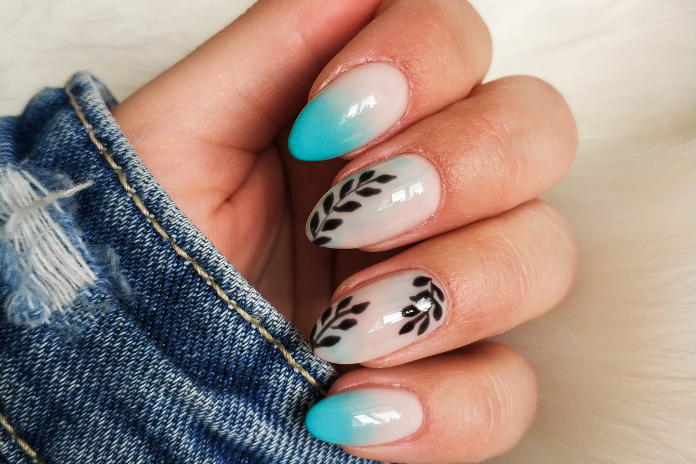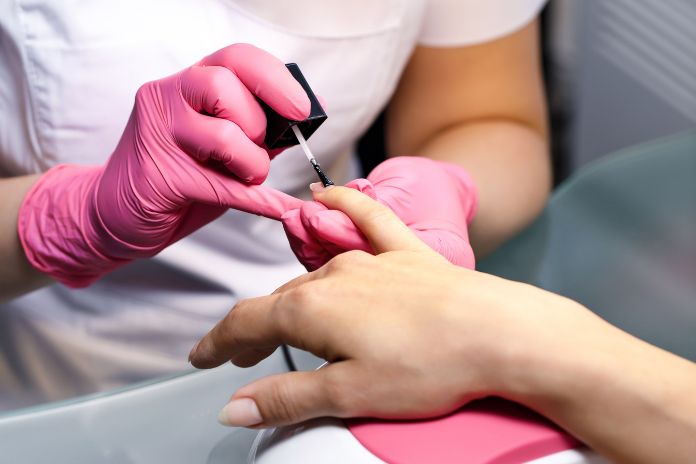Acrylic nails are a popular beauty trend that can give you the perfect manicure look. However, some people experience soreness and discomfort after getting acrylics. This can be a frustrating experience, especially if you’re not sure why it’s happening.
Soreness after getting acrylic nails is a common problem, and there are several reasons why this can happen. The first reason is the application process itself. Acrylic nails require the use of strong chemicals that can be harsh on your natural nails. The process of filing and buffing your nails to prepare them for the acrylics can also cause soreness and discomfort. Additionally, the weight of the acrylics can put pressure on your natural nails, leading to soreness and tenderness.
What are Acrylic Nails?
Acrylic nails are artificial nail extensions made from a mixture of liquid monomer and powder polymer. This mixture is applied to the natural nails and then sculpted into a desired shape. Once the mixture is applied, it hardens due to a chemical reaction between the liquid and powder. Acrylic nails are popular among people who want to enhance the appearance of their nails by making them longer, stronger, and more durable.
Acrylic nails are available in various colors, designs, and styles, making them a popular choice for people who want to experiment with their nail looks. They are also known for their ability to withstand wear and tear, making them a great option for people who want long-lasting manicures.
However, acrylic nails require maintenance, including regular fills or touch-ups, to keep them looking their best. If not properly maintained, acrylic nails can become damaged, lift, or break, causing discomfort and pain.
Additionally, the application of acrylic nails involves the use of chemicals that can be harsh on the natural nails. This can cause soreness and discomfort, especially if the nails are not properly prepared before the application. It is important to ensure that the nails are properly cleaned and trimmed before the application of acrylic nails to minimize the risk of soreness and discomfort.
Why Do Nails Get Sore After Acrylics?
When you get acrylic nails, it is not uncommon to experience soreness in your nails afterward. This discomfort can range from mild to severe and can last for several days. There are several reasons why your nails may become sore after getting acrylics.
Sensitivity to Acrylics
One reason why your nails may become sore after getting acrylics is due to sensitivity to the acrylic material. Some people are more sensitive to the chemicals in acrylics than others, which can cause an allergic reaction. Symptoms of an allergic reaction include redness, itching, and soreness in the nails.
If you have a sensitivity to acrylics, it is important to let your nail technician know before getting the acrylics applied. They may be able to use a different type of material or adjust the application process to minimize the risk of an allergic reaction.
Improper Application Techniques
Another reason why your nails may become sore after getting acrylics is due to improper application techniques. If the acrylics are applied too thickly or are not properly bonded to your natural nails, this can cause discomfort and soreness.
It is important to choose a reputable nail salon and nail technician who has experience with acrylics. They should follow proper application techniques, including preparing your natural nails, applying the acrylics evenly and thinly, and properly curing the acrylics.
In conclusion, soreness after getting acrylic nails is a common experience. It can be caused by sensitivity to acrylics or improper application techniques. By being aware of these factors and choosing a reputable nail salon and technician, you can minimize the risk of experiencing soreness after getting acrylics.
How to Ease the Soreness
If you’re experiencing soreness after getting acrylic nails, there are a few things you can do to help alleviate the discomfort. Here are some home remedies you can try:
Home Remedies
- Soak your nails in warm water with Epsom salt for 15-20 minutes to reduce inflammation and soreness.
- Apply a cold compress to your nails for 10-15 minutes to numb the area and reduce pain.
- Massage your fingers and nails gently to improve blood circulation and promote healing.
- Take over-the-counter pain relievers like ibuprofen or acetaminophen to help reduce pain and inflammation.
If the soreness persists or gets worse, it’s important to consult a professional.
Consulting a Professional
If you’re experiencing excessive soreness, redness, or swelling, it’s best to seek the advice of a professional. Visit your nail salon or a dermatologist to get a proper diagnosis and treatment plan. They may recommend:
- Removing the acrylic nails to relieve pressure and allow your natural nails to heal.
- Applying a topical ointment or cream to reduce inflammation and promote healing.
- Taking antibiotics if an infection is present.
Remember to take care of your nails and avoid overexposure to harsh chemicals and excessive filing. With proper care, you can enjoy beautiful and healthy nails without experiencing soreness or discomfort.
Preventing Soreness After Acrylics
Choosing the Right Nail Technician
Choosing the right nail technician is the first step to preventing soreness after getting acrylics. A good nail technician will take the time to properly prep your nails, apply the acrylics evenly, and ensure that they are not too thick or heavy.
When choosing a nail technician, make sure to do your research. Read reviews online, ask for recommendations from friends, and check out the salon’s website and social media pages. Look for a technician who is experienced, knowledgeable, and has a good reputation.
Proper Aftercare
Proper aftercare is also essential to preventing soreness after getting acrylics. Follow these tips to ensure that your nails stay healthy and pain-free:
- Avoid using your nails as tools. Use your fingertips instead of your nails to open cans, peel stickers, and perform other tasks.
- Keep your nails dry and clean. Moisture can cause the acrylics to lift, which can lead to soreness and infection.
- Moisturize your cuticles and nails regularly. Dry, cracked cuticles can be painful and lead to infection.
- Avoid harsh chemicals and solvents. These can weaken the acrylics and irritate your skin.
By following these tips, you can prevent soreness after getting acrylics and enjoy beautiful, healthy nails. Remember to choose a reputable nail technician and practice proper aftercare to keep your nails looking and feeling their best.
Alternatives to Acrylics
If you’re experiencing soreness after getting acrylic nails, you may want to consider alternative options for your next manicure. Here are a few options:
Press-On Nails
Press-on nails are a popular alternative to acrylics. They are easy to apply and remove, and they come in a variety of shapes, sizes, and designs. They are also affordable and can be found at most drugstores and beauty supply stores.
One of the benefits of press-on nails is that they don’t require any harsh chemicals or drills to apply. They are simply glued onto your natural nails, which means they are less damaging to your nails than acrylics. However, they may not last as long as acrylics and may need to be replaced more frequently.
Gel Nails
Gel nails are another alternative to acrylics. They are similar to acrylics in that they are applied using a brush and cured under a UV light. However, they are less damaging to your nails than acrylics and are less likely to cause soreness or discomfort.
One of the benefits of gel nails is that they are more flexible than acrylics, which means they are less likely to break or crack. They also come in a variety of colors and designs, and they can be easily removed using acetone.
Overall, there are several alternatives to acrylics that you can consider for your next manicure. Whether you choose press-on nails or gel nails, it’s important to choose a method that is gentle on your nails and doesn’t cause any discomfort or soreness.

